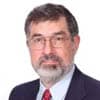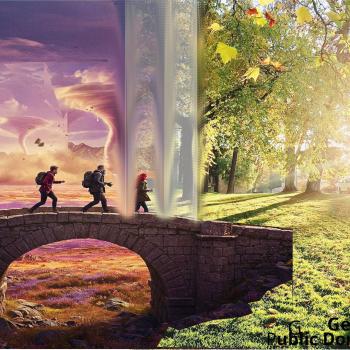 By Ed Buckner
By Ed Buckner
Those of us who lead or work in the movement to advance rationality, skepticism, realism, and reliance on the only resources actually available to human beings are generally optimistic. We know that broad understanding of one thing is crucial: that natural and human solutions are all we have, however much some human beings may fantasize about supernatural forces to help us. Despite the bizarre behavior of many of our species, we think we'll make it. Of course, I'd be most surprised if the representatives of any religion or worldview who write for Patheos are not optimistic that their own perspective will prevail and that humanity will thrive as a result. We cannot all -- especially Atheism and the various theisms -- be right. Either there is some supernatural force or there isn't, and either mankind will survive and even thrive, or we'll perish. None of us knows the future; all of us can only speculate.
A variety of polls and studies over recent years have suggested that the number and proportion of non-religious Americans have grown sharply in recent years. For an excellent example, see the American Religious Identification Survey (ARIS) report on American Nones. Many of those same studies and others show at the same time increasing numbers and political influence from fervent religionists, which apparently means that America is getting more polarized. The demographic reductions that will allow these simultaneous and seemingly contradictory increases must be coming from the apathetic middle: a growing proportion of Americans are identifying as being either strongly religious or as secular.
One consistent result of studies, one that is directly responsible for optimism by Atheists, is the correlation between age and irreligiosity. People under 30 are significantly more likely to be "nones" -- Americans without religion -- than are older folks. (Atheists go by many labels and the meaning of bright, rationalist, freethinker, agnostic, secularist, humanist, materialist, philosophical naturalist, and Atheist does vary, with differences sometimes quite important to the individuals using the terms, but I'll use "Atheist" as shorthand here for all of these.) There is also at least a weak but persistent correlation between higher educational levels and less religiosity, though that correlation seems to be getting weaker instead of stronger.
Less systematic evidence that Atheism or secularism is getting stronger comes from the political front. While a substantial number of Americans bizarrely conclude that President Obama is a secretly practicing Muslim, the President himself has taken many steps to be more inclusive of those of us without religion. Obama's pronouncement in his Inaugural Address, "For we know that our patchwork heritage is a strength, not a weakness. We are a nation of Christians and Muslims, Jews and Hindus -- and non-believers," and in his writings and talks before and since, mark an improved acceptance of those of us without religion. The Obama administration's welcoming of representatives from the Secular Coalition for America to the White House in February 2010 was another step forward. We are pleased to have a President of the United States who, Christian though he certainly seems to be, had not one but two parents who were not, as adults, religious: a secular humanist mother and a lapsed Muslim, atheistic or agnostic, father. We secularists are far from satisfied politically, since National Days of Prayer and government agencies to promote faith-based initiatives persist. (We're convinced that such things are unwise and unconstitutional.) But we are heartened that the stigma absurdly associated with us seems to be diminishing.
The publishing success of books like Richard Dawkins's The God Delusion or Christopher Hitchens's God Is Not Great or of Sam Harris's books also point toward growth in understanding and appreciation of atheistic or humanistic thinking. Strengthened national organizations like the one I currently lead -- American Atheists -- and many others (such as the American Humanist Association, Freedom From Religion Foundation, and the Council for Secular Humanism) also bode well for our point of view.




